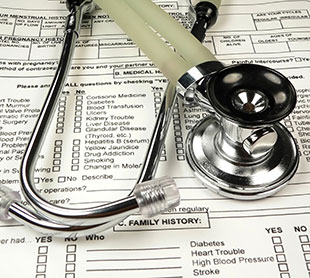
The organizational structure is four primary business units or divisions. Each is responsible for specific phases of development from the incubation of ideas, where critical thinking and analysis are paramount, through the application of engineering, and translation to clinical research. The regulatory and review parallel to ensure compliance. Each is organized to leverage critical resources and strategic partners, yet is not wholly isolated; rather the structure is one where the deliverable of one informs the next. In this way we are able to reduce time and costs; to realize efficiency and win approval.
Divisions

Innovation and Incubation
Science Research
Clinical Research
Regulatory Affairs

Incubation is the deliberate process of ideas exploration, innovation, critical thinking, analysis, and evaluation. The final step in the process leads to 'hatching' a strategic plan. Our team of experts brings the diversity and breadth of expertise requisite for success.
Market Analysis
Economics and market analysis are important considerations; lay the groundwork for arguments of feasibility as well as fiscal planning. cost-benefits, entrepreneurial models, and economic models
Concept Evaluation
1) Situation analysis – the specific need and scope that is not being met
2) Epidemiological assessment – genetic and behavioral factors
3) Economic and ecological evaluation – costs associated with “situation”
4) Current technology and treatments
5) Influences – factors including attitudes, policies, politics, and people
6) Innovation – change driven by new technology
7) Risk and threats
8) Projected outcome(s)
Prototyping
Design works have the capability to CAD, blueprint, 3D print, mill or fabricate working prototypes.
Strategic Planning
Medical Science Research will deliver a complete strategic plan upon which a decision to move forward or re-tool can be made. Moving forward the plan guides budgets, contracts, timelines, and the template for project management.

Science Research takes the data collected from tests together with study analysis to assess risk, and will deliver a comprehensive 'Risk Analysis' that will be integrated in business strategies. The 'Risk Analysis' lays the groundwork for Clinical Research.
Biomedical Engineering
Biomedical engineering is the application of engineering principles and design concepts in
bio-mimicry (for medicine).
Compatibility Testing
Our scientist will design and execute testing platforms to prove the integrity of materials, of design strategies, and the compatibility with human biology.
Cadaver Studies
Cadaver studies are meticulously planned and executed to maximize the collection of wide variety of data and to ensure the viability in design.
Live Studies
The business unit of Science Research has the capacity to design and execute studies to answer questions of safety, metabolism, and dynamic effect.
• Safety
• Pharmacokinetics
• Pharmacodynamics
Risk Analysis
Science Research takes the data collected from tests together with study analysis to assess risk, and will deliver a comprehensive 'Risk Analysis' that will be integrated in business strategies. The 'Risk Analysis' lays the groundwork for Clinical Research.

The Clinical Division is charged with integrating the findings from Pre-Clinical testing and studies into a clinical trial Protocol, and executing the trial. The goal is to further the science of Pre-Clinical using rigorous clinical and research methodology to test compounds or devices in humans.
Protocol Design
Project Managers take the lead in partnering with project sponsors, as well as assembling and training the Clinical Team. Project Managers develop and manage the budget, evaluate and qualify potential research sites, and ensure the trial is in compliance with regulatory authorities.
Clinical Team Training
Project Managers, Clinical Scientists, and Field Specialists take the lead in training the clinical team and research site staff.
First-in-Human Studies
First-in-Human studies are planned and executed in close collaboration with the sponsor, under the direction of the medical director, attended by a support team including the Project Manager, Clinical Scientist, Field Specialists. First-in-Human studies trigger evaluation of the protocol, safety, hypothesis, and data.
Clinical Trials
Clinical Trials draw on the core expertise of Project Managers who broadly oversee the integration of a clinical team to ensure trials meet timelines, remain within budget, follow the rules and regulations prescribed by the Code of Federal Regulations Title 21 and/or other Ethics Authorities both domestic and international.
Clinical Trials activities include trial training, start-up, supporting enrollment, monitoring and data collection, and trial close-out.
Electronic Data Capture
Development and design of Electronic Case Report Forms compliant with the Code of Federal Regulations Title 21, Part 11 compliant, to facilitate collection, and to ensure integrity and validation of the data.
Data Monitoring
Clinical Research Associates perform in-house and on-site Source Data Verification (SDV) to ensure the trial is conducted in compliance with rules and regulations, to ensure the data is query free, and to ensure the data is query free.

Contracting and Legal
Medical Science Research retains the services of a team that specializes in ensuring a clean contract and ensuring the intellectual property are paramount considerations from the beginning of a project and into the future. Sponsors are also invited to use their own legal services if preferred.
Institutional & Ethics Committee Review
Institutional Review Boards (IRBs) and/or Ethics Committees (ECs) perform a central role in guiding medical research projects. Our Regulatory Specialists are familiar with the submission and review process, and will guide the entire team to success.
Informed Consent Forms
Medical Writers steeped in the regulatory requirements and elements necessary to ensure the Informed Consent process is voluntary, is truly informed, and that the language conforms to and contains all necessary elements to meet CFR Title 21 Part 50.25; Protection of Human Subjects
Data Validation
The Date Manager is responsible for reviewing the systems, oversight of electronic data capture, query resolution, and partnering with statistics to validate the data.
Safety Review
The Medical Director and Field Specialists are required members of Safety Monitoring Boards (SMB). The “board” periodically reviews safety reports, or may be triggered when the incidence of adverse or serious adverse events appear to negatively trend.
Audits
Audits can be triggered by any member of the clinical team, any representative of the sponsor, by member of the site, by a clinical investigator, or by an institutional or regulatory review board. Regulatory and Review is responsible for conducting and/or supporting audits.
Statistical Analysis
Statisticians with experience in scientific and clinical research models are a valued part of the development process from initial protocol design through data analysis. The conclusions of the statistician are central to submissions to regulatory authorities i.e. the Food and Drug Administration (FDA) and are highlighted in publications.
Archives
Assist with or provide study data, regulatory documents, and data are archived per the Code of Federal Regulations Part 312: for a minimum of two years after the marketing application is approved or the FDA is notified the trial has been closed, or until informed by the sponsor that destruction is permitted - which ever is longer, and CFR Title 21 Part 812 for and IDE trials.
Paper and/or electronic study or trial archives are secured under climate and access control.
